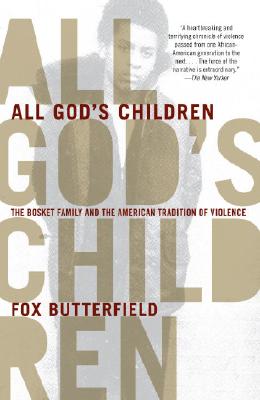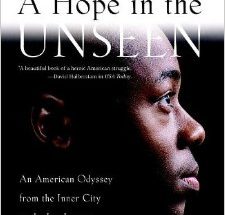Few nonfiction books take the reader on a journey of discovery in which the audience, the author and the subject all seem not to know where it will lead.
Fox Butterfield’s All God’s Children is a family history of violence that neither the author nor his young subject — a man convicted of double murder who invites Butterfield to research his story — understood when the journalist began his reporting.
When Butterfield first met Willie Bosket, the person billed as New York State’s most dangerous criminal, was already in solitary confinement in prison. So dramatic were the details of his case and the public outcry that ensued, that Bosket inspired a series of laws across the country allowing the courts to try children as adults.
Through their meetings, and through access to Bosket’s juvenile records and family documents, Butterfield pieces together a childhood marred by extreme sexual and physical abuse, during which the young Bosket is passed from one juvenile facility to another and develops suicidal and homicidal urges by around age 10. Though the child psychologists he encounters realize the immediacy of his troubles, Bosket never receives the help he needs.
Most journalists would stop here: exploring the childhood tragedies of a murderer, and asking whether these contributed to the violence he later inflicted on others.
But for Butterfield, this is only the start. His desire to understand the young man before him leads him back through four generations of Boskets who were variously the victims and perpetrators of violence, or both. He finds a cycle of neglect and abuse that intensifies and culminates in Bosket’s killings at the age of 15.
This alone is a controversial thesis; Bosket never met the father who, like him, stayed in many of the same juvenile detention facilities as a child and eventually killed two men. But Butterfield shows how even without direct contact between them, the same mistreatment shaped both their lives.
His second thesis is more contentious.
Although Bosket’s case is inarguably extreme, Butterfield uses it to explore the history of American violence.
Not all cultures are equally violent, as anyone who has lived in a country with radically lower crime rates can attest to. Likewise, Butterfield finds that historically, not all parts of the early US were equally brutal. Murder and assault were most common in the South, particularly North Carolina, a fact that Butterfield attributes to the area’s honor culture, inherited through the local population’s Scotch-Irish ancestry.
He describes a society in which armed duels and savagely bloody brawls were tools of defending the family reputation. Honor was a motive that not only justified, but at times necessitated violent acts.
Butterfield argues that southern whites transferred their violence-infused sense of honor to blacks during the era of slavery, even as they subjected them to shame and brutal mistreatment as chattels. This violence only worsened in the decades following emancipation, when scared and angry white militias and vigilantes unleashed the full brunt of their ferocity on the former slaves who outnumbered them.
In All God’s Children, this, too, is an inextricable layer of Bosket’s life: a backstory to the cruelty and violence that surrounds him as an urban youth in New York in the 1960s and 1970s.
Butterfield’s work is the rare book about crime that seeks not simply to question whether someone was guilty, or why they committed their crimes, but to answer how such deeds are even possible, and whether they are a reflection on greater familial, societal or cultural failures. Though his narrative ends in the 1970s and the book was published 17 years ago, the concerns he describes remain largely unaddressed, and the story is therefore as relevant today as ever.




